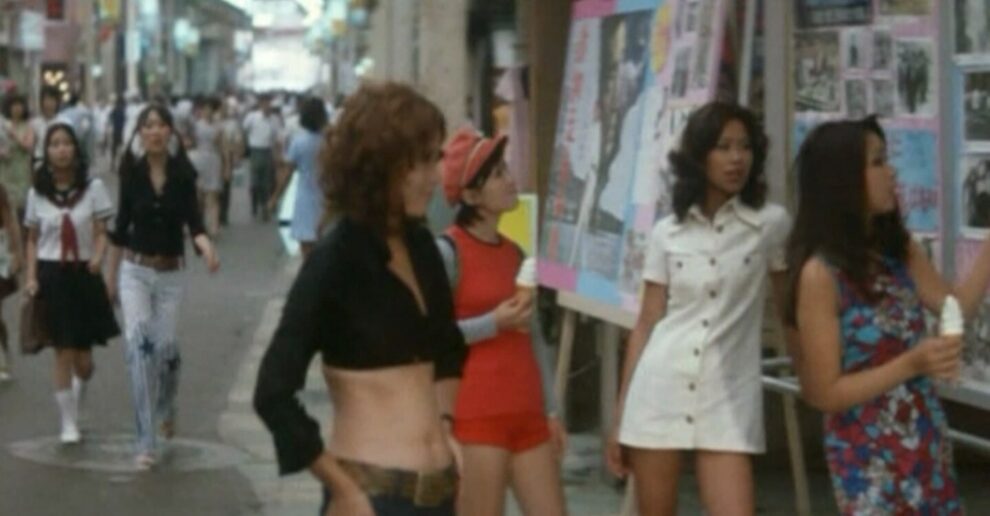First entry in the Girl Boss series, “Queen Bee's Counterattack” seems to embody all the elements of both the series, and of the Japsploitation of the 70s, with fanservice being the key word here.
The story takes place in the 1970s, where Reiko is the head of Athena, an all-girls gang, trying to survive among the yakuza, motorcycle gangs, and essentially the world, following a set of simple rules, with the most important being not falling in love with a particular man. Reiko, as much as the rest of the girls, frequently have sex with men, but they keep the rule intact, while their leader's ways and particularly her will to help any of the group in trouble have inspired unwavering loyalty by the rest of the members. The appearance of a newcomer, Mayumi, however, as much as of a previous boss that has just been released from prison, Jun, put much strain on both the gang and Reiko herself, who sees her authority threatened. Meanwhile, love also seems to lurk in every corner.
With a script that loans heavily, and in a bad way, by Seijun Suzuki's “Gate of Flesh”, it becomes rather evident, and early on, that the story here is just an ‘excuse' for Noribumi Suzuki to include as many fanservice elements as one could in a 90 minutes film. In that fashion, the sex scenes are quite frequent, most of the time including some sort of violence, as are the action scenes, with the slapping being one of the common factors among the two, while the movie also includes motorcycle chases and some notions of romance, essentially ticking as many boxes in the crowd-pleasing list as possible.
As such, the story does not make much sense, with the episodes following one another with very little connection among them apart from the characters, with the only thing actually connecting is Reiko and her gang's desperate struggle to survive outside of society and in a world dominated by men in every level. That the girls use violence and sex themselves to do so could be perceived as a social-philosophical comment, but again, it is here to service all the elements we mentioned in the previous paragraph.
The editing results in a frantic pace in an effort to fit all the episodes in the particular duration, and to cover the plethora of errors in both script and execution, with the abruptness of the cuts frequently bordering on the ridiculous. The cinematography by Osamu Furuya highlights the rush these films were made with, with the camera occasionally being shaky for no reason and out of focus, with the only scenes that seem to be properly shot being the erotic ones.
The acting, expectedly, also follows the same rules, with the majority of actors spewing lines that appear important and deep, but they really aren't. However, Reiko Ike in the protagonist role as much as Miki Sugimoto as Mayumi highlight their charisma, which mostly derives from their beauty however, rather than their acting.
And considering all the above, one would probably ask what is the value of such a film. The answer lies in two factors. Firstly, although essentially addressed to men, the movie is quite entertaining to watch from beginning to end, with the combination of exploitation and titillation working quite well throughout. Secondly, Suzuki's unique ideas run rampant throughout, and are evident in both story and presentation, with the scene with the sex competition on top of racing motorbikes being truly iconic. Furthermore, the mashup of different elements, is actually funny to watch after a point, in slapstick fashion, with the subplots about loan sharks, drug trafficking, tabloid scoops, father-daughter relationships and the performances of songs out of nowhere definitely giving enough for someone to enjoy the film, despite its evident lack of artistic value.
As such, “Girl Boss Blues: Queen Bee's Counterattack” emerges as a truly cult film, which is addressed, though, almost exclusively to fans of the Japsploitation of the 70s.















